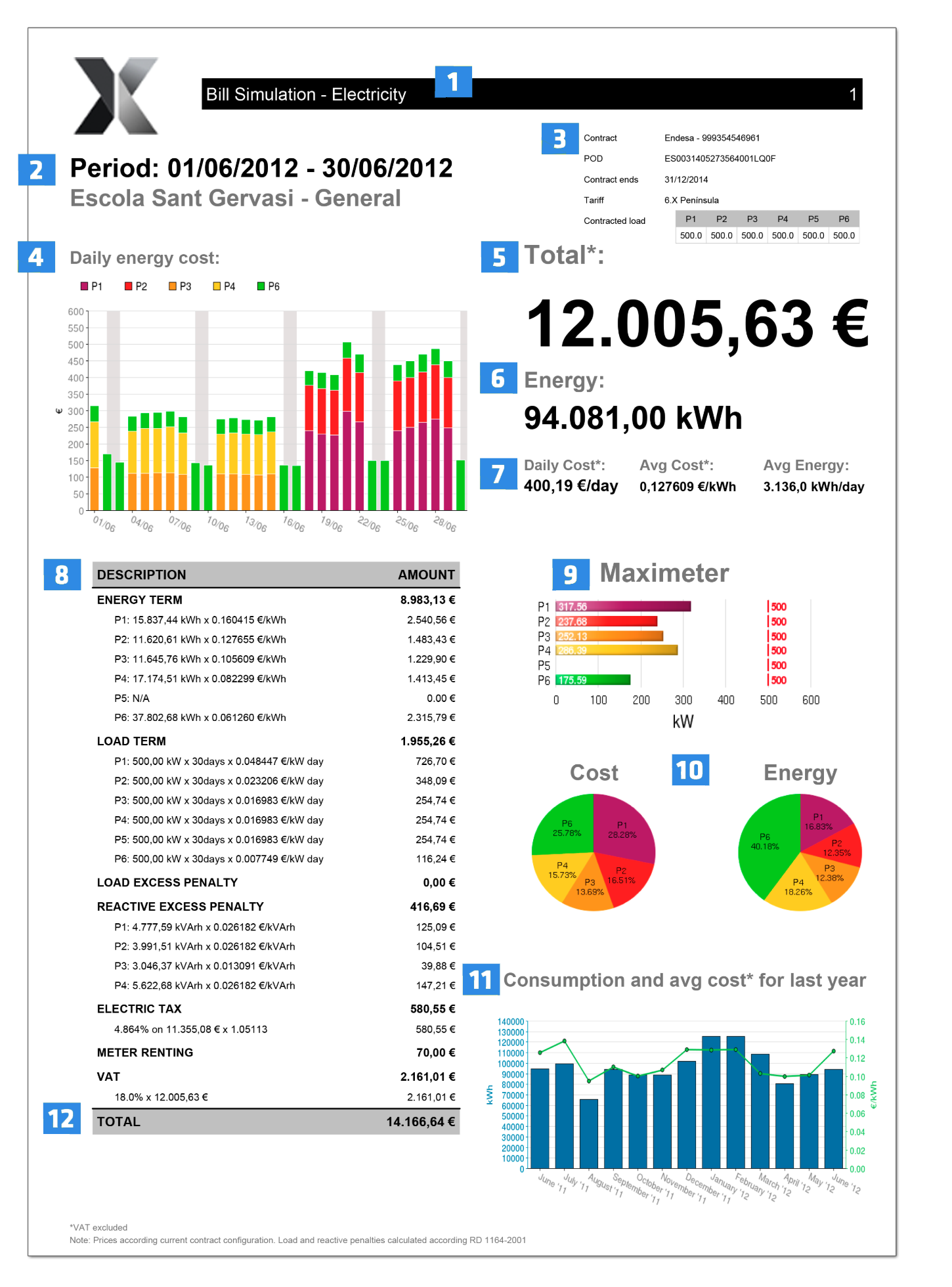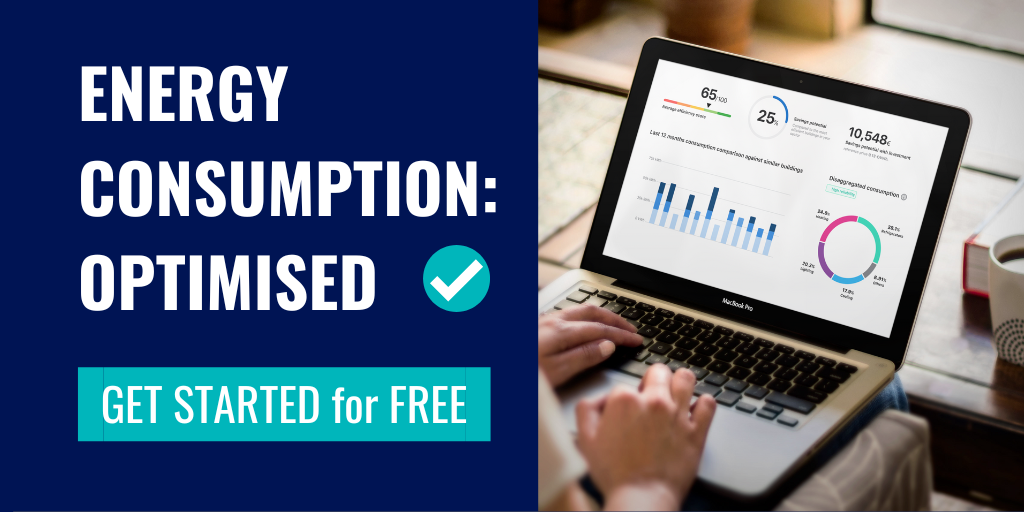Having professionals who are experts in their field is one of the secrets to obtaining the best results in any of your company’s strategies. In the case of efficient energy consumption management, the same happens, and to achieve the objectives that were set, you must have: a well-planned energy strategy, and specialised professionals such as the Energy Manager. Below, we tell you all about what this professional profile can do for you:
Carrying out a good Global Energy Management strategy for your company will improve the energy efficiency of your activity, achieving cost savings and compliance with current regulations.
But, what do we understand by Global Energy Management?
When we talk about Global Energy Management in your company, we are referring to all the actions that are carried out so that the energy efficiency of your activity is as optimal as possible. In other words, make sure that the energy consumption necessary to produce the goods or services you offer is as low as possible, meeting sustainability criteria and achieving energy savings.
So, to make your business energy-efficient, it is essential to analyse, understand, control, monitor and optimise the energy consumption of your buildings and facilities.
But managing your company’s energy does not guarantee that you will obtain the best results, nor that you will meet your energy efficiency and savings targets. To achieve this, you must count on a key profile: the ENERGY MANAGER.
The Energy Manager is a professional, who usually comes from a technical background and experience, an expert in everything related to energy. The main objective of this professional is to optimise energy use, both in terms of consumption and cost.
This does not mean that you necessarily have to hire someone internally, you can also opt for external energy management services that coordinate with your maintenance team.
So why is the role of an energy manager so important to your business? Here are 7 reasons why you should put an Energy Manager in your life!
7 Reasons why your company should have an Energy Manager
1) Tracking of Energy Consumption
Among other things, the Energy Manager will track the overall energy consumption of the organisation. To do this, he or she will need to collect consumption data from all your meters, which is essential to perform the following tasks. At this early point in the journey, it would be ideal for your company to have an energy management software (EMS) that collects meter data (both head-end and possible sub-metering analysers that may be installed) automatically rather than entering it manually into an Excel spreadsheet, why? For 2 reasons:
- Saving time and improving the productivity of your team, i.e. if the energy manager does not have to manually enter data by data in a spreadsheet, they will be able to dedicate that time to actions that give more value to the company’s operations. Not to mention, how tiring and monotonous this manual task can be, so automating it will improve the working conditions of the energy manager and your maintenance team.
- And for accuracy reasons that will make all the difference. When data is entered manually, there is always the likelihood that an error will be made when collecting data from meter readings or passing it to the spreadsheet.
With a solution that automates and digitalises this task, you will avoid the possibility of human error in data collection and display. When making energy efficiency decisions, you know for sure that you are basing them on accurate and reliable information.
2) Monitoring Energy in real-time
Monitoring is one of the pillars of energy management. With it, you can analyse your company’s consumption data and detect possible issues, check deviations and find out why they occur, detect potential savings, follow up on the savings measurements actions taken, etc. For this reason, one of the main tasks of the energy manager will be to monitor your company’s energy data. Here, ideally, the manager should have an EMS that enables real-time monitoring, as it will allow the manager to detect problems and make decisions in a more agile way. A specialised energy analytics software is essential for energy managers, as it gives them all the information they need on their screen with only one click.
3) Validation of your organisation’s Energy Bills
Another task that the energy manager will complete for you and your maintenance team, is the validation of energy bills. To do this, the energy manager will simulate the bills based on the energy consumption that is monitored in real-time, in your Energy Management Software. With this simulation, they will obtain the current energy cost of your buildings and will be able to later compare it with the energy bills received from the supplier and validate it.
Errors in electricity bills are common, so the figure of the Energy Manager, in this case, beyond ensuring correct billing, can help save money for the organisation by correcting them.
4) Provide support for decision/investment making
As you can deduce, the energy manager has a lot of valuable information from energy monitoring, data analysis, and the reports generated from all this data.
This, together with the detailed knowledge of the operation and energy consumption of the facilities by your maintenance team, will allow you to make the best decisions to meet your company’s energy efficiency and savings goals.
Therefore, the role of an energy manager becomes strategic in the decision-making process of your organisation, as the actions to be carried out can lead to significant investments and savings.
5) Follow up on Energy Efficiency savings and improvements
When a company carries out global energy management and develops energy efficiency projects, it is convenient to follow up on the measures taken, and the results obtained.
Measurement and Verification projects are a way to evaluate the actual performance of savings projects within the energy efficiency plan. Here the energy manager will monitor the projects in order to detect inefficiencies or consumption problems.
Many energy management professionals apply the so-called IPMVP protocol (an international protocol that quantifies the performance of the energy efficiency measures taken) to define the savings and verification measures that will have to be considered.
Implementing the IPMVP protocol involves regular monitoring reports. In this case, energy managers also have tools that allow them to create and customise their reports, as a maintenance manager will not need to see the same information as a CFO.
Integrated energy management platforms such as Spacewell Energy (Dexma) are an example of such technologies. With them, the manager will create customised reports including the data requested by each department, even using company branding.
6) Establish Actions to comply with your organisation’s sustainability goals (SDGs)
The SDGs (Sustainable Development Goals) are 17 goals established in the 2030 Agenda for Sustainable Development approved at the United Nations General Assembly in 2015.
These goals set out the targets to be met by public and private organisations by 2030 in terms of sustainability. This is where the Corporate Social Responsibility of your organisation and the Sustainability Strategies you are implementing come into play.
It is important to bear in mind that more and more customers are taking into account CSR and the sustainable policy of the companies when they are making their purchasing decision, as it represents an added value to the product or service.
Consequently, from the point of view of energy consumption, having an energy efficiency strategy and a professional to carry it out, will not only help to save energy and reduce your company’s costs but will also allow you to meet the sustainability objectives set.
It is important to note that reducing the amount of energy used is one of the most achievable sustainability goals in the short term, thanks to the work of the energy manager and using technologies based on advanced analytics and AI.
7. Support the maintenance team with Automatic Anomaly detection
The Energy Manager will not only help your company save energy and reduce your energy costs, but they can also save costs for the maintenance department.
And how do they do it?
After a thorough analysis of the energy consumption data of your installations, the energy manager can detect anomalies in the behaviour of your installations. This may lead the manager to think that it is a consequence, among other reasons, of the malfunctioning of some parts of the installations, and transmit this information to the maintenance team.
In this way, your facility manager will be able to detect in time a possible failure – for example in a piece of machinery – which can lead to a repair that avoids major costs such as replacement.
But this task is sometimes neither easy nor immediate, thus the anomaly is not detected in time. To prevent this from happening, the energy manager can rely on energy data analysis tools based on Artificial Intelligence models that will automatically detect anomalies in your facilities’ consumption behaviour.
An example of this type of tool is Spacewell Energy (Dexma) Optimise, which analyses your energy data 24/7, automatically detecting anomalies and creating daily lists that the energy manager can filter and prioritise by energy impact and cost.
As you can see, a role such as the energy manager supported by Energy Intelligence Management tools will benefit your company in many ways, as they will be able to collaborate with different departments. If your company needs to save energy, and you want to count on top professionals, do not hesitate to contact the Spacewell Energy (Dexma) team and its long list of partners specialising in energy services.





